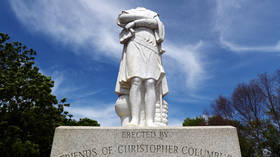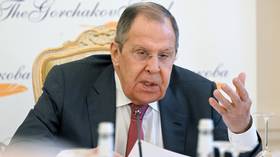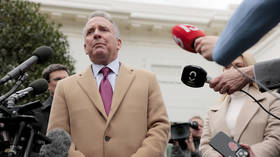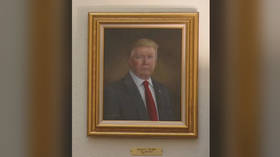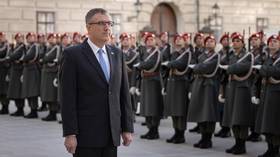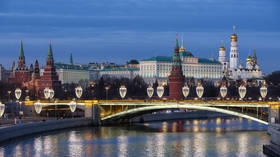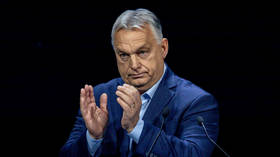Labour MPs taking the knee for #BLM voted to bomb Libya, ushering in a regime that restored the slave trade in black Africans
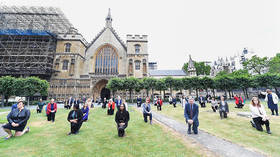
Many of them also voted to attack Iraq and Syria, and their party was the first to bring in discriminatory immigration controls. Why is Labour’s stance on race so confused and contradictory?
Labour leader Keir Starmer and his deputy Angela Rayner had themselves photographed “taking the knee” in their office to remember George Floyd, killed by the Minneapolis Police, in the gesture that has been adopted by the Black Lives Matter protests. Afterwards, Labour’s MPs knelt outside Parliament. The London and Tower Hamlets Mayors, Sadiq Khan and John Biggs made their own contribution to the commemoration by having the statue of slave trader Robert Milligan removed from the West India Docks he built.
The performance is an insight into Labour’s confused stance on race. On the one hand, the party thinks it “owns” the black vote and can put pressure on the government over its racist positions. On the other, Labour’s own record is marked by race discrimination.
When Jamaican immigrants first arrived in Britain on the SS Empire Windrush in 1948, Colonial Secretary Arthur Creech Jones told the Cabinet it was a problem that would have to be dealt with. It was the beginning of a long history of race discrimination. In 1968, it was Harold Wilson’s Labour government that first brought in race-based immigration controls, when it refused entry to Commonwealth citizens who didn’t have a grandparent born in Britain.
In local government, Labour councils such as Tower Hamlets segregated the allocation of council housing, favouring white tenants over Bangladeshis, under a policy of “local connections”.
To explain away these racially motivated policies, Labour shifted the blame onto the voters, claiming it had to accommodate racist sentiments to get into power. It would be truer to say that it was Labour’s commitment to state power at home and imperial reach abroad that led it to discriminate against its black citizens.
All through the 1980s, the Labour leadership fought to limit the influence of the party’s black supporters on the choice of candidates for Parliament. In 1995, two leading shadow cabinet members, Clare Short and Harriet Harman, headed up a Membership Abuse Committee that looked into Muslim infiltration of the party.
When Labour returned to power in 1997, the party once again blew hot and cold on the race issue. Immigration Minister Barbara Roche persuaded Tony Blair’s cabinet to adopt a stridently liberal approach to immigration. According to insiders, Blair favoured greater immigration to dilute the influence of traditional white Labour supporters.
Later, Labour ministers such as David Blunkett and Jack Straw shifted towards a more hostile policy. Straw had himself filmed at Dover with police, while they raided a lorry looking for illegal immigrants. Two weeks later, the stricter policy led to the deaths of 58 Chinese migrants, who suffocated in an inward-bound lorry at the same port.
A breach between Labour’s Muslim supporters opened up in 2003, when Tony Blair committed the party to support George Bush’s Iraq War. The move was deeply unpopular and led to massive demonstrations. A significant section of Labour’s youth and Muslim vote then peeled off to put George Galloway, standing as an independent anti-war candidate, into Parliament, winning the Bethnal Green and Bow constituency from Labour.
When Labour lost control of the Tower Hamlets mayoralty to Lutfur Rahman’s Tower Hamlets First Party, Labour’s John Biggs used an obscure law against “undue spiritual influence” (originally drafted to stop Catholics organising a bloc vote) to have the election overturned. The spurious grounds were that Muslims were mindless saps who would vote whichever way they were told in the mosque.
After the Labour left’s Jeremy Corbyn captured the party leadership in 2015 but failed to win two elections in a row, the centrists are back in charge. Labour’s new leader, Keir Starmer, won because the members hoped he would be seen as a safer pair of hands.
Also on rt.com Covid-19 & the strange death of English liberty: We were once freebooting pirates, now we churn out fear-stricken weaklingsIn his years as Director of Public Prosecutions, appointed when Gordon Brown was Prime Minister, Starmer proved his respectable credentials by blocking the prosecution of the police who shot and killed the Brazilian immigrant Jean Charles de Menezes in 2005, and in 2011, fast-tracked the prosecution of those who took part in rioting after police shot Mark Duggan during an attempted arrest.
With the centrists back in power, the Labour Party is once again in the hands of the people who rallied for an interventionist policy of waging war against peoples overseas. Starmer’s cabinet includes Hilary Benn, who led the campaign to bomb Syria in 2015, and David Lammy and Lisa Nandy, who voted to bomb Libya in 2011. The attack on Libya brought to power a regime that restored the slave trade in black Africans.
Labour’s support for tokenistic performances, such as taking the knee outside Parliament, and removing statues of long-dead slave traders, is a substitute for policies that could help people of colour in Britain. Labour needs to stop treating black people as voting fodder and taking their votes for granted. A commitment to a non-racial immigration policy and against virtue-signalling wars in the developing world would do more practical good.
Think your friends would be interested? Share this story!
The statements, views and opinions expressed in this column are solely those of the author and do not necessarily represent those of RT.



